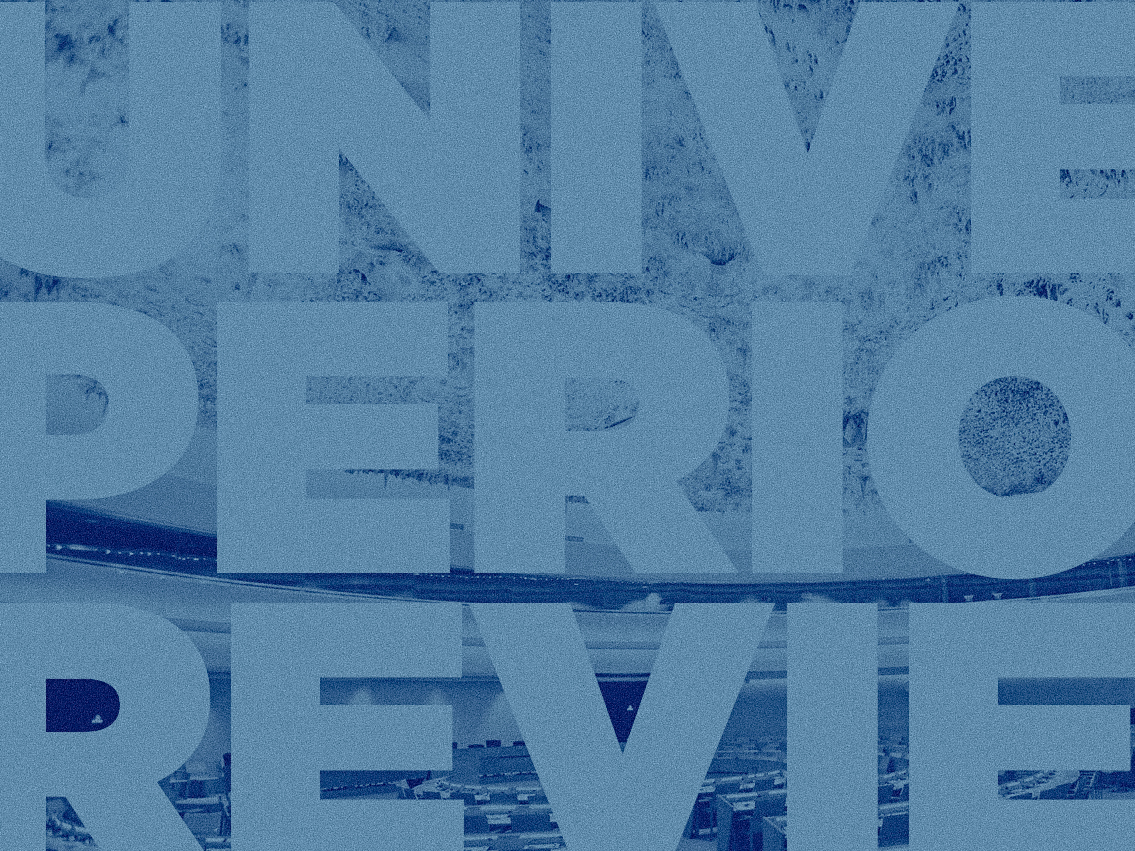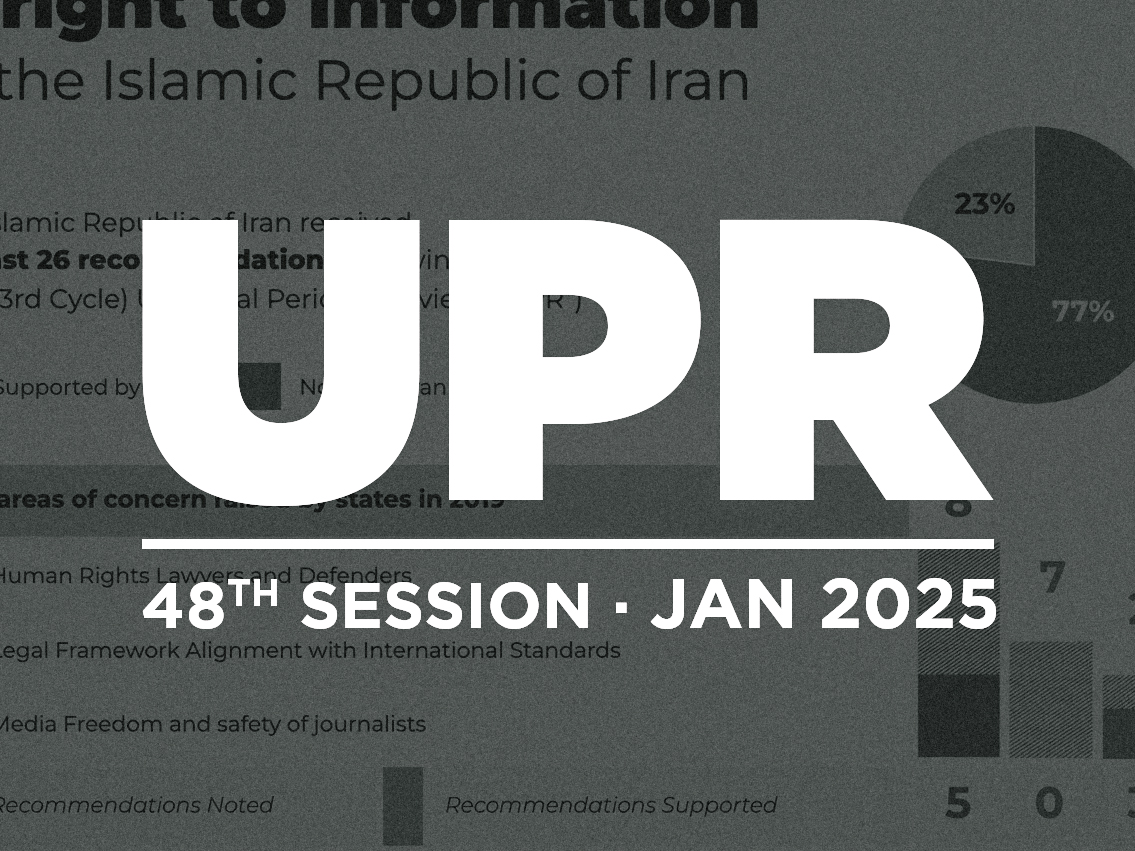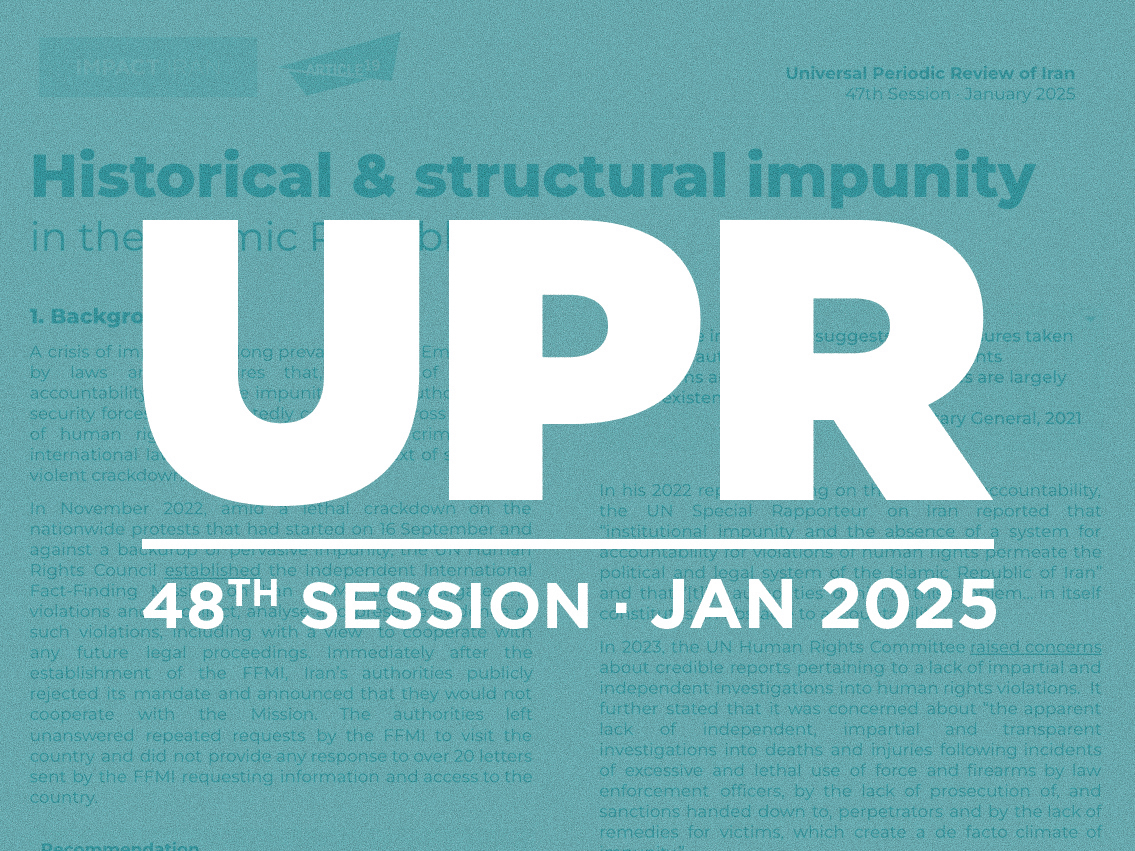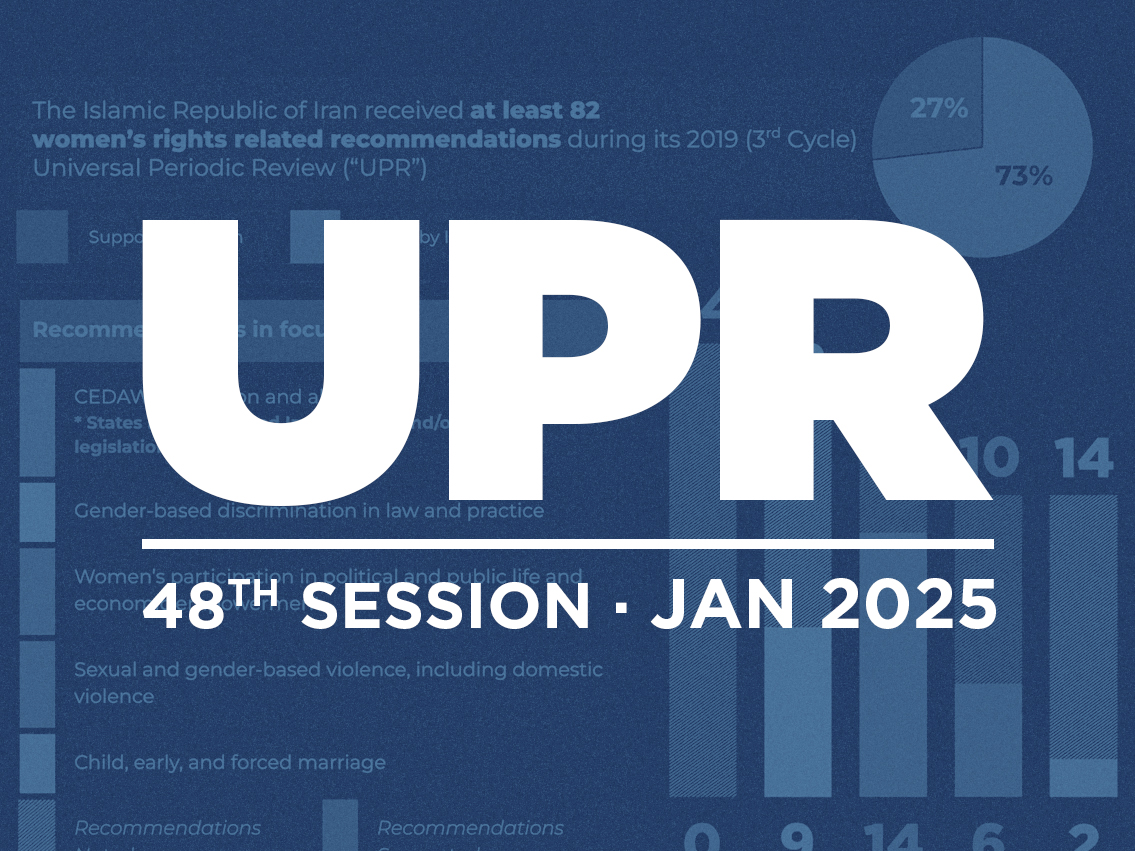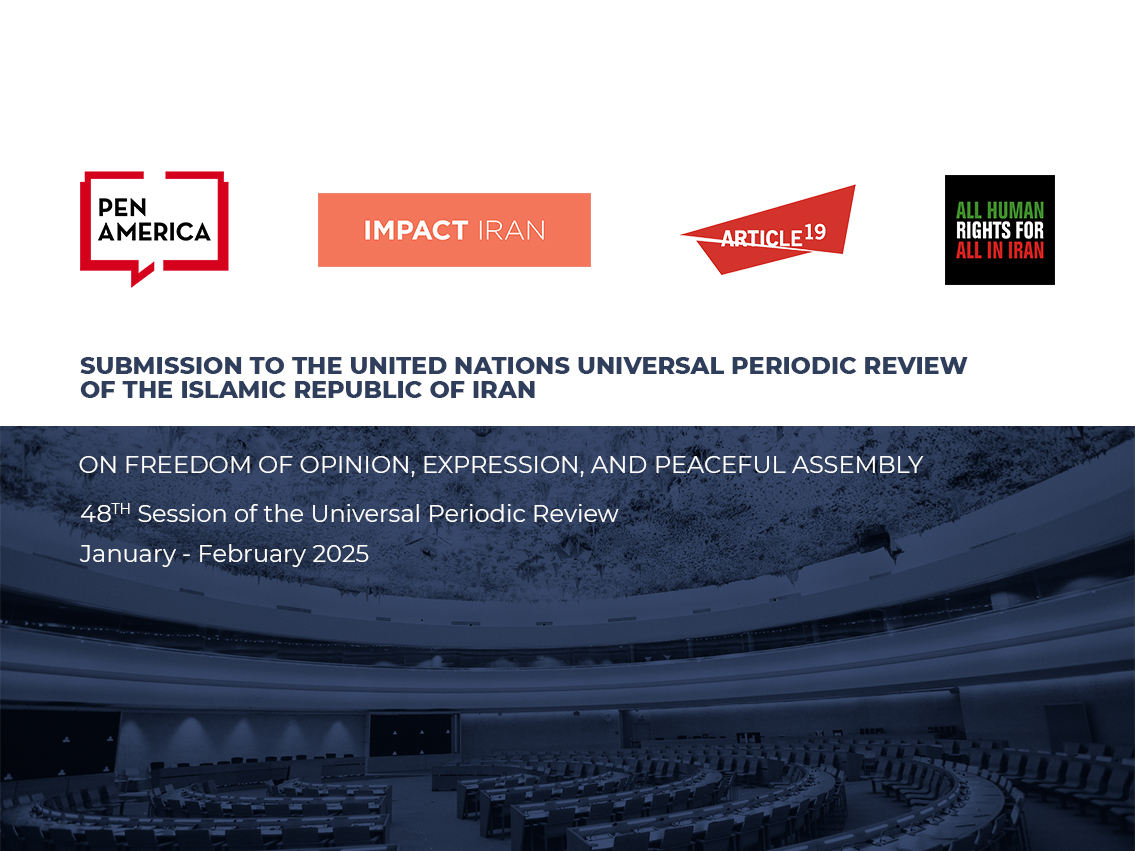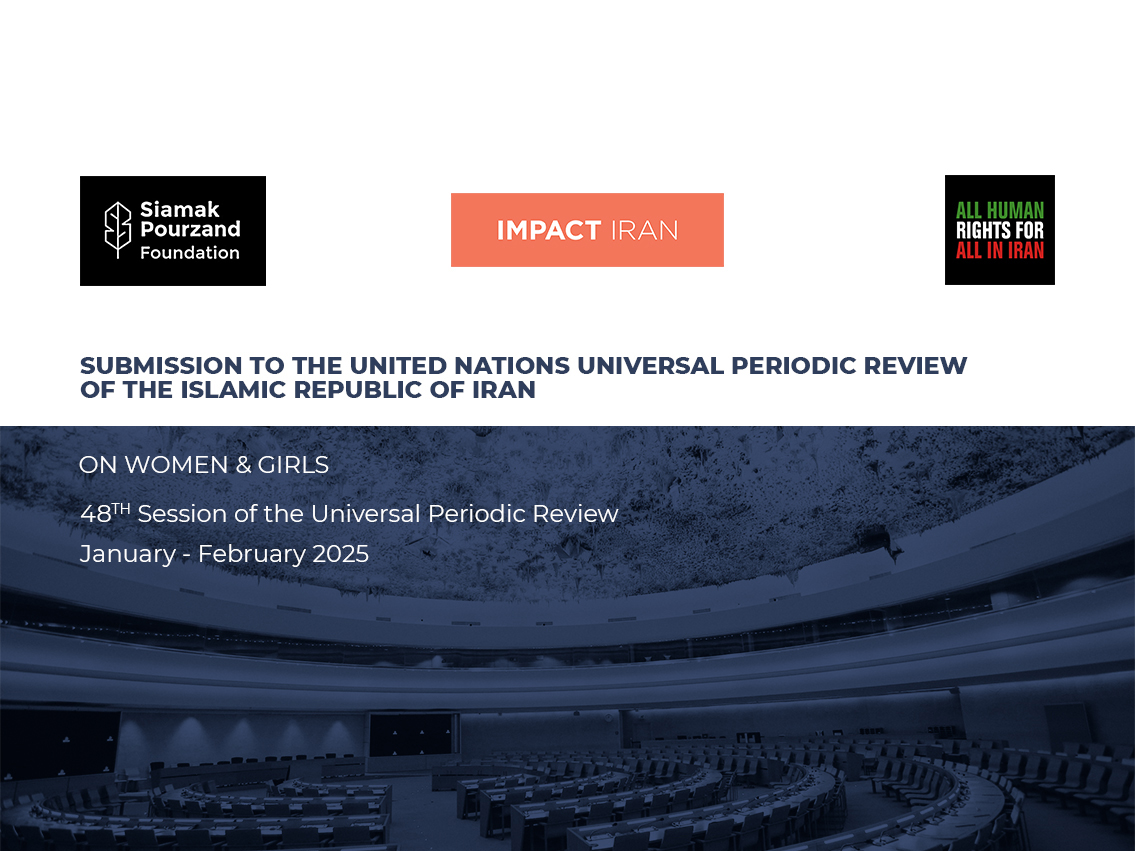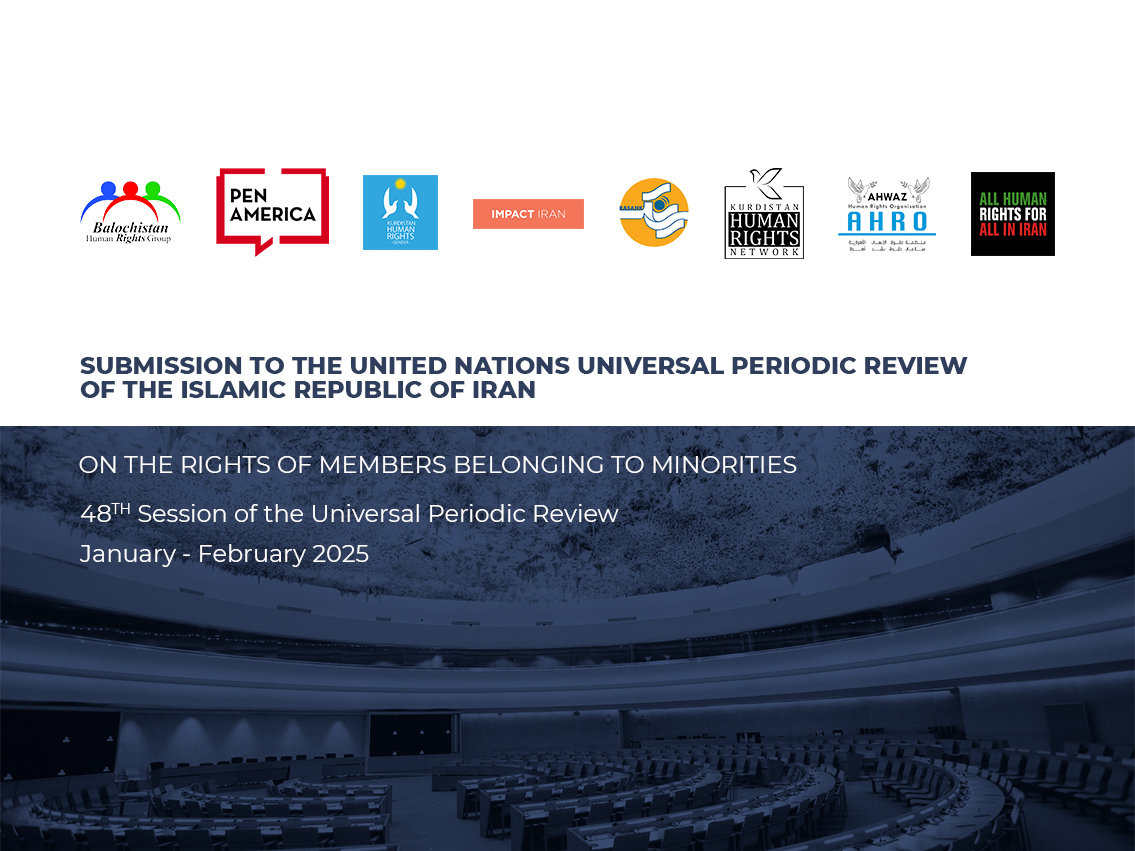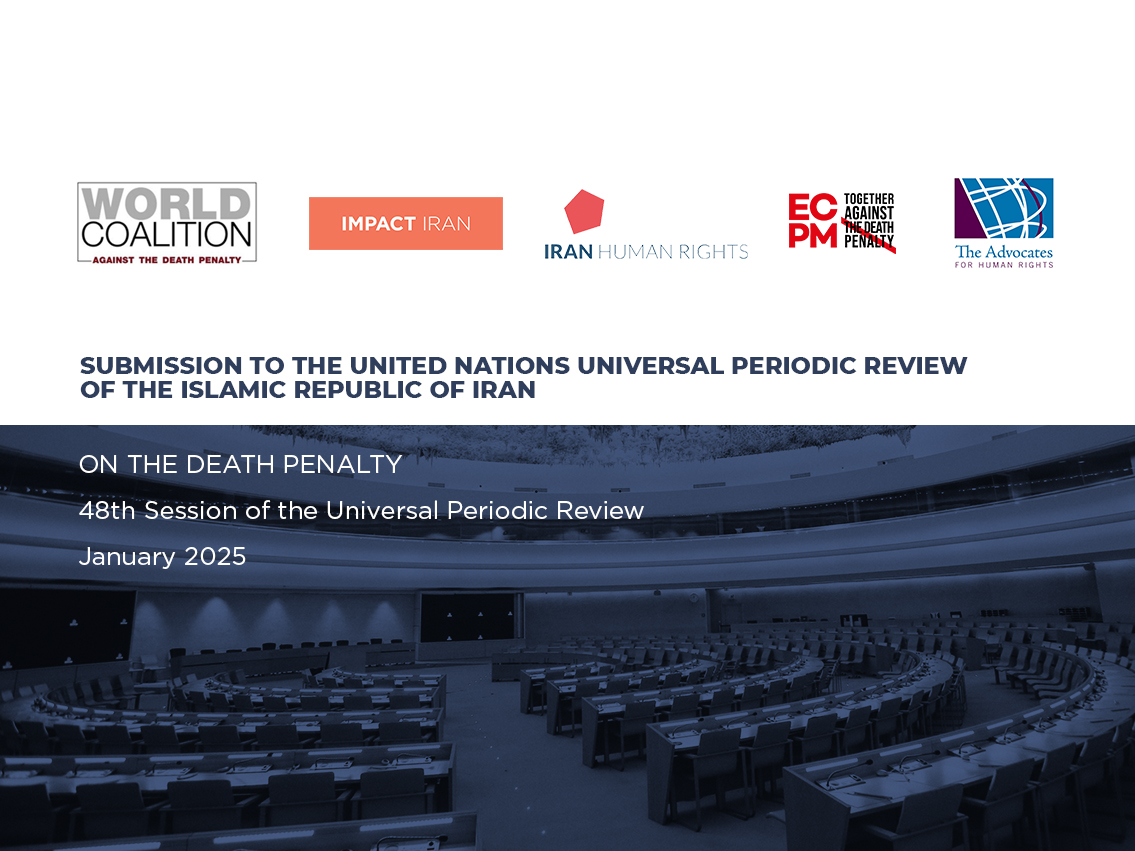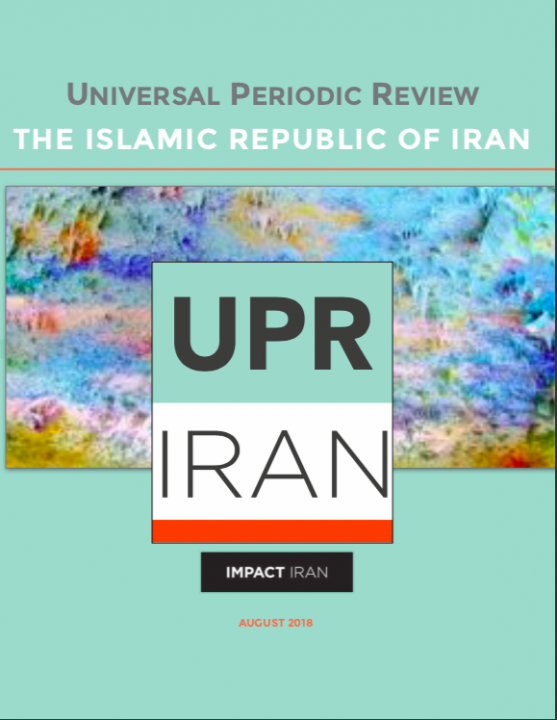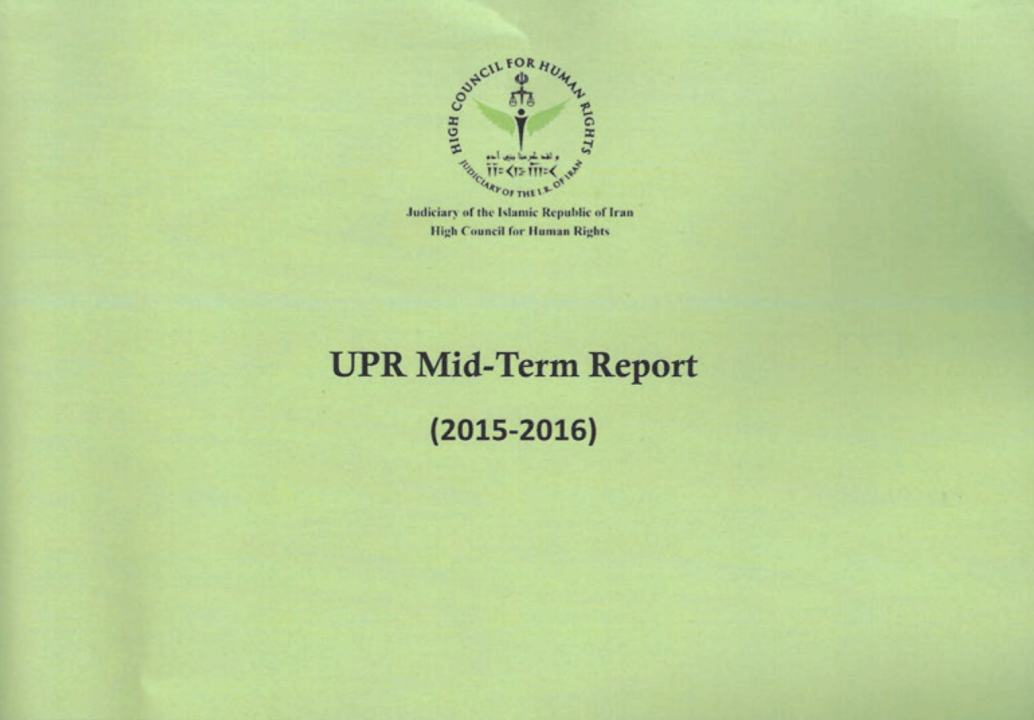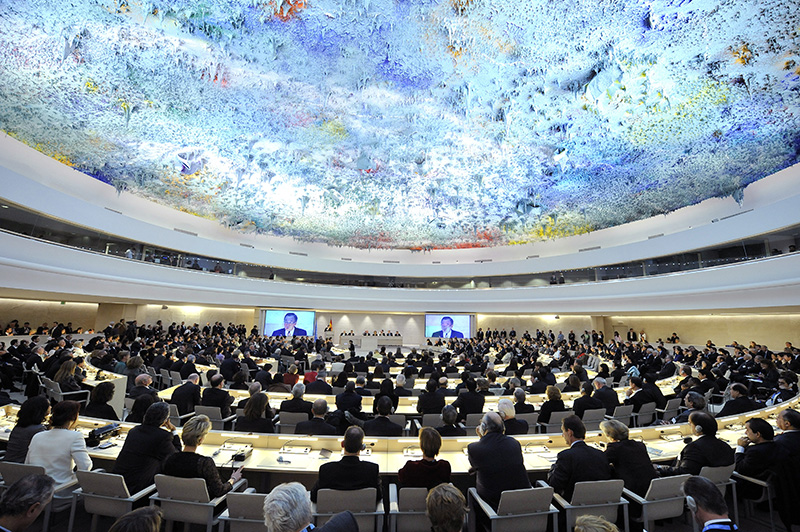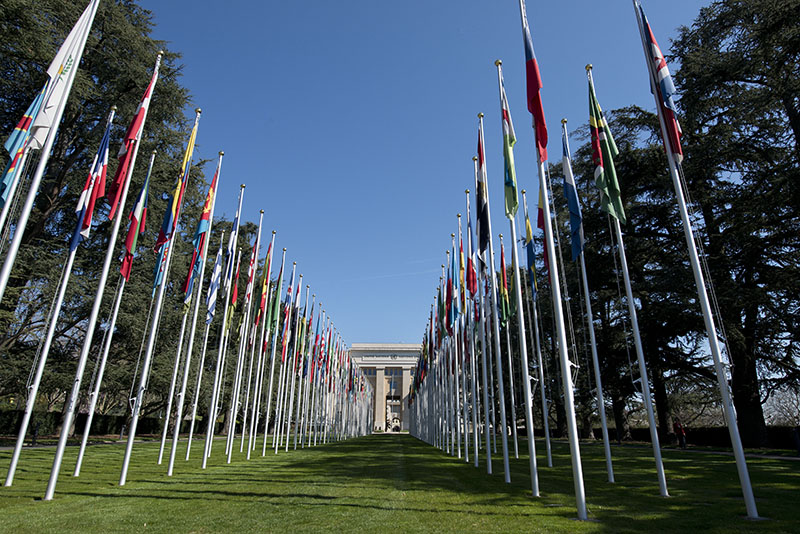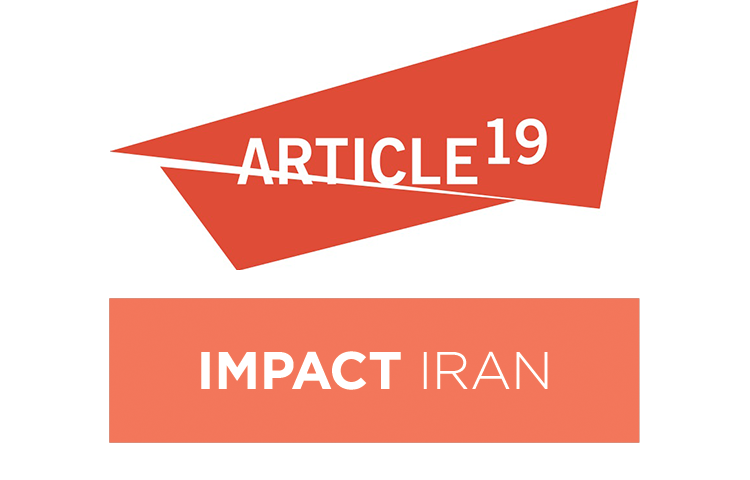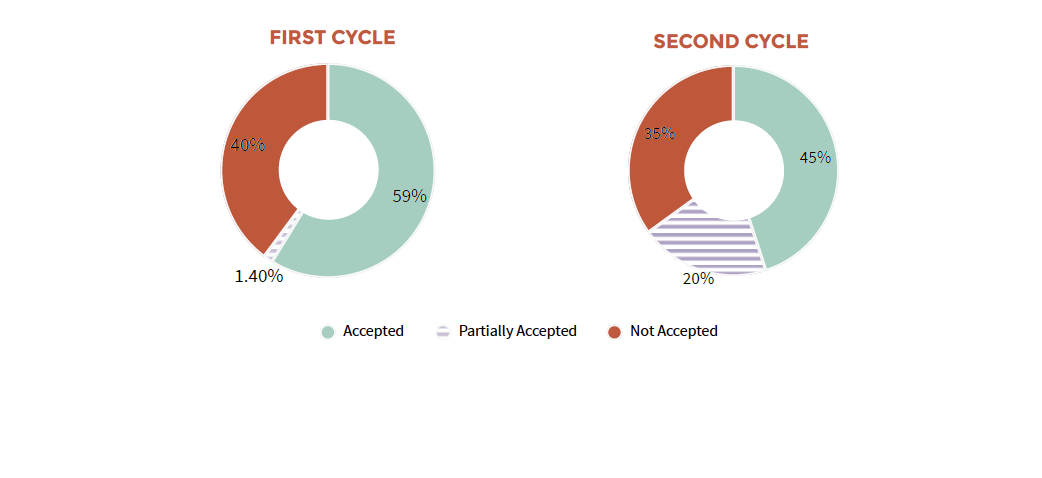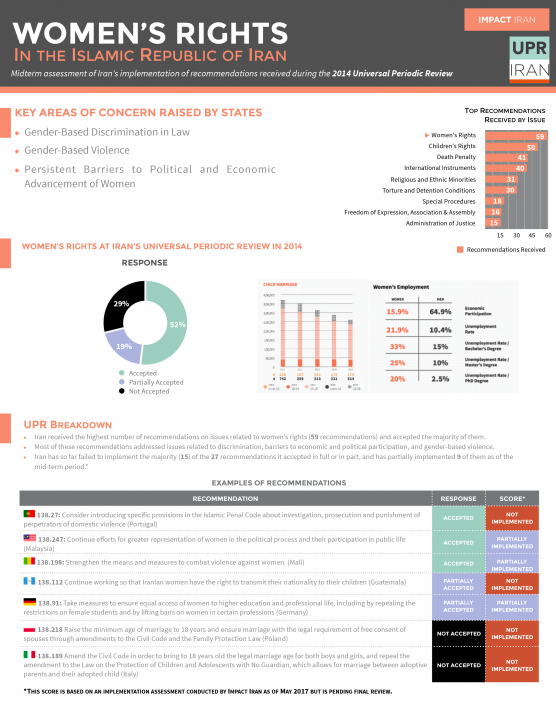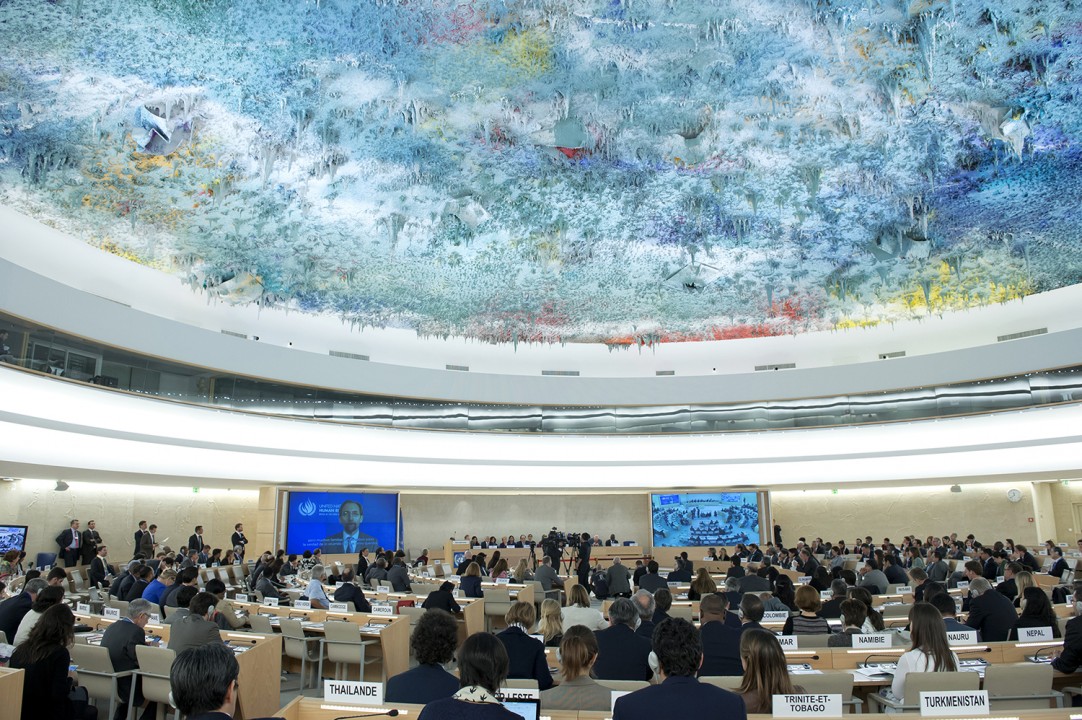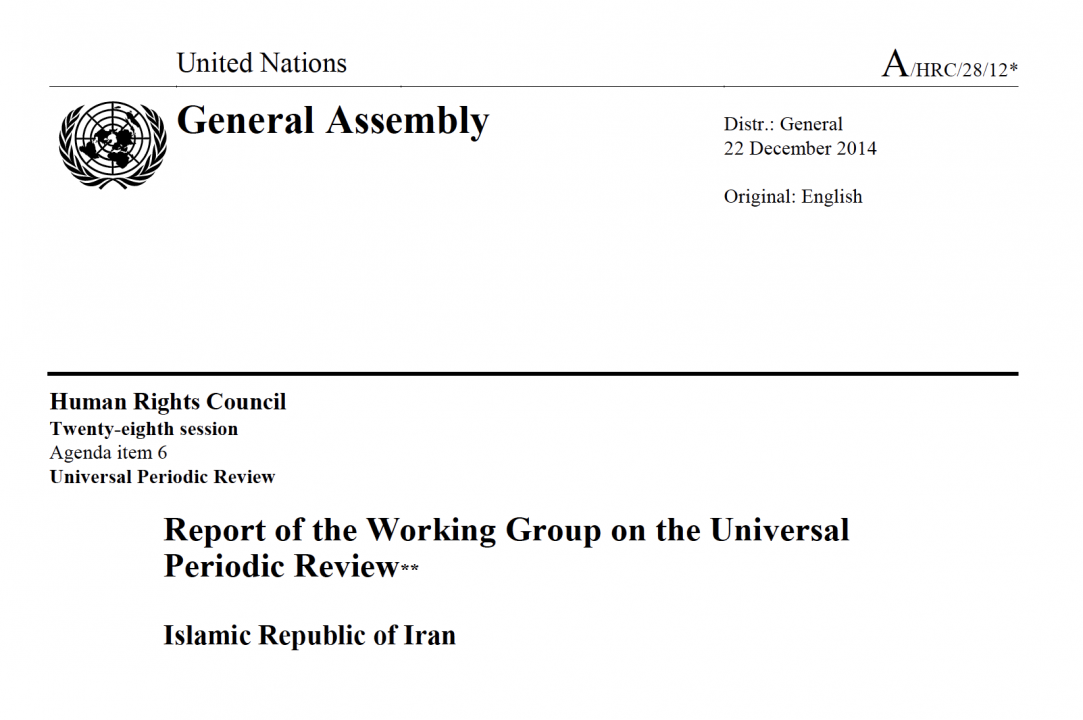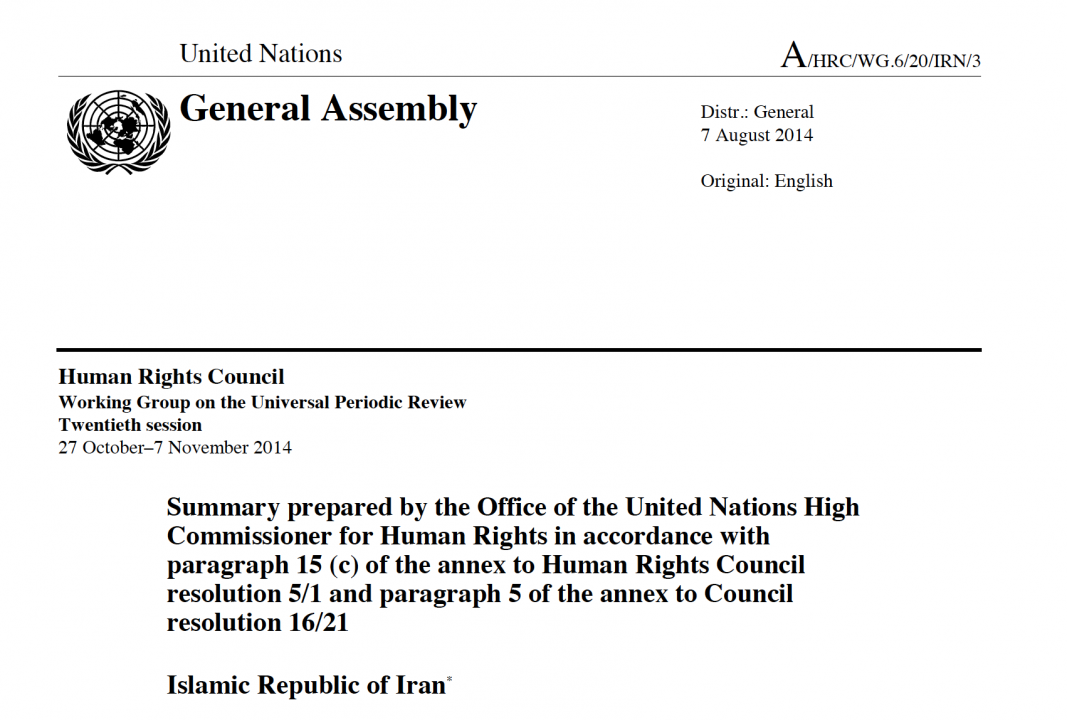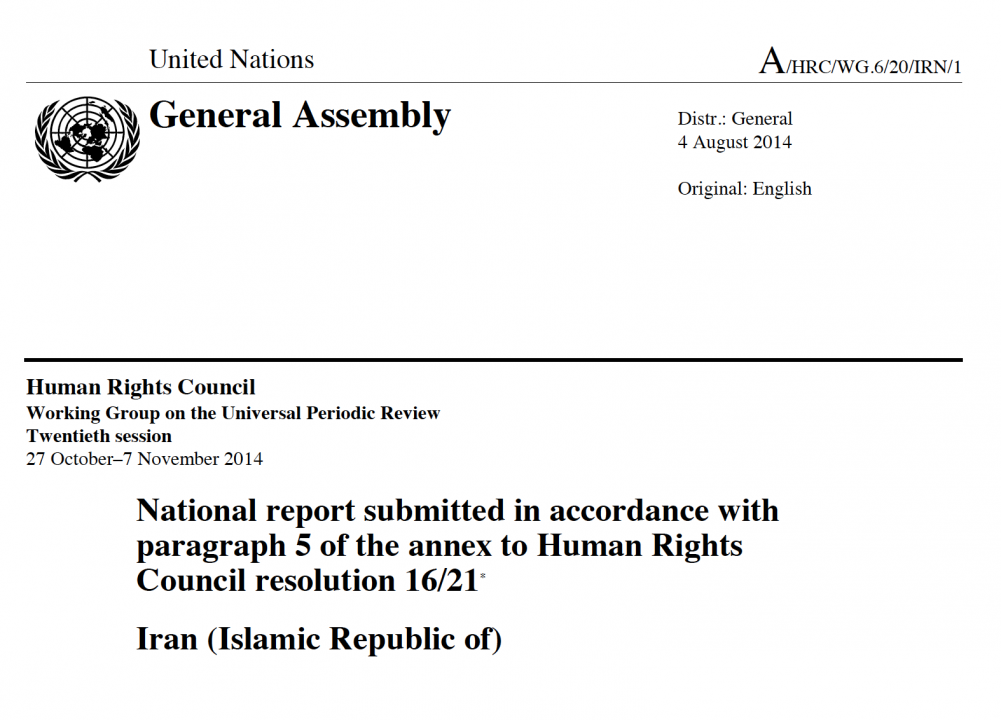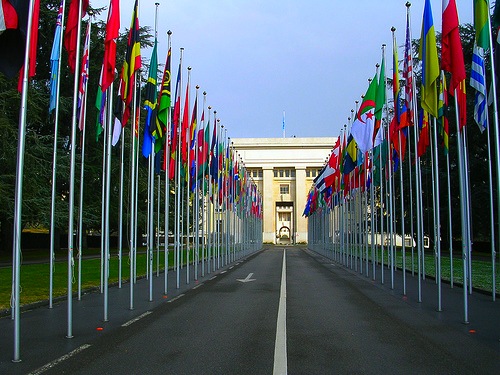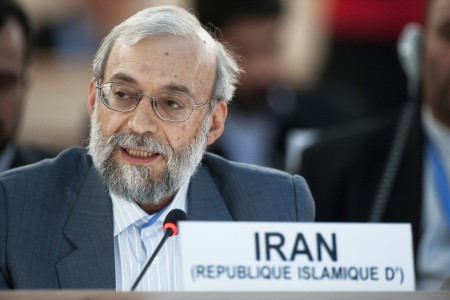Universal Periodic Review
The Universal Periodic Review (UPR) is a process established to review adherence of all 192 member states to their human rights obligations set out in inter alia, the Universal Declaration of Human Rights, and various conventions, treaties, and human rights instruments. The review is conducted every four years by the UPR Working Group, which consists of the 47-members of the Human Rights Council. Iran was reviewed on 15 February 2010.
The State under review usually submits a self-assessment, or national report, of its human rights situation. Two reports that compile human rights reports and issues are also submitted by the Office of the High Commissioner on Human Rights (OHCHR), as well as members of civil society. The State under review then take part in an interactive dialogue with the UPR Working Group during a three-hour meeting. An outcome report containing a summary of the interaction and recommendations issued by the UN Member States.
Please view our UPRIran website for a more detailed look at Iran’s performance: English or Persian
Factsheet · Freedom of opinion & expression & right to information in the Islamic Republic of Iran
For more on the Universal Periodic Review of freedom of expression, read Impact Iran’s joint submission with ARTICLE 19, PEN
Factsheet · Historical & structural impunity in the Islamic Republic of Iran
Universal Periodic Review of Iran48th Session · January 2025 A crisis of impunity has long prevailed in Iran.
Factsheet · Women and Girls’ Rights in the Islamic Republic of Iran
Universal Periodic Review of Iran 48th Session · January 2025 For more information on women and girls’ rights, read Impact
Joint Submission: Universal Periodical Review (UPR 2024) – Freedom of Expression
In the 2019 report of the Working Group on the Universal Periodic Review (“UPR”) on the Islamic Republic of Iran
Joint Submission: Universal Periodical Review (UPR 2024) – Women & Girls
There is shared concern among UN State Members about the situation of human rights of women and girls, and women’s
Joint Submission: Universal Periodical Review (UPR 2024) – Minorities
In the 2019 report of the Working Group on the Universal Periodic Review (“UPR”) on the Islamic Republic of Iran
Documents from UN UPR 3rd cycle
View a list of reports and submissions in relation to the 3rd cycle of the Universal Periodic Review in 2019.
Coalition Submissions (2nd Cycle)
Documents and analysis prepared by Impact Iran and coalition members during the 2nd cycle of the Universal Periodic Review.
Briefing Notes (2nd Cycle)
Briefing notes prepared by Impact Iran during the 2nd cycle of the Universal Periodic Review.
Reports from Iran (2nd Cycle)
Read Iran’s Midterm Assessment submitted during the 2nd cycle period of the Universal Periodic Review.
Documents from UN (2nd Cycle)
View list of reports in relation to the 2nd cycle of the Universal Periodic Review in 2014.
Documents from UN (1st Cycle)
View list of reports and submissions in relation to the 1st cycle of the Universal Periodic Review in 2010.
UPR Mid-Term Report — 2015-2016
Part 1 | Part 2
Read the mid-term report for the Universal Periodic Review submitted by the government of Iran.
UPR Joint Submission – Impact Iran and Article 19
Download PDF
In this Universal Periodic Review (UPR) midterm report, ARTICLE 19 and Impact Iran assess the progress made by the Islamic Republic of Iran (Iran) in implementing freedom of expression related recommendations received during the second cycle in October 2014. Iran’s third cycle review is due to take place November 2019.
UPR Follow-up Report on Implementation
The UPR is a human rights mechanism uniquely favored by many member states, including the Islamic Republic of Iran. Indeed, Iran has stated that the UPR is the “most pertinent, effective and trustful UN mechanism for the review of human rights situation of all States.” Iran’s approach to the UPR, however, raises questions about its level of commitment to the mechanism, as well as to upholding its international human rights obligations overall.
The UPR is a dynamic process through which any UN member state, as a peer, can propose recommendations to a “State under review” on how to best advance human rights in their respective countries. Recommendations accepted by the state then become a framework for its promotion of human rights, as well as for stakeholders to dialogue with the state and measure its progress.
Universal Periodic Review Recommendation Assessment
A mid-term assessment of Iran’s implementation of recommendations received during the 2014 UPR.
UPR 2014
View list of reports and resolutions in relation to the 2nd cycle of the Universal Periodic Review in 2014.
2014 UPR – Working Group Report on Iran
Summary of the interactions and recommendations issued by UN Member States in the working group.
2014 UPR – Summary of Stakeholder Submissions
Summary of stakeholder submissions submitted to the UPR Working Group.
2014 UPR – Iran’s National Report
Iran’s National Report to the Twentieth Session of the Universal Periodic Review Working Group.
UPR 2010
View list of reports and resolutions in relation to the 1st cycle of the Universal Periodic Review in 2010.
2010 UPR – Iran’s Views on the Conclusions and/or Recommendations
June 3, 2010
Download PDF
Iran’s formal conclusions and views of the recommendations and statements offered by the working group.
2010 UPR – Report of the Working Group on the Islamic Republic of Iran
March 15, 2010
Download PDF
Summary of the interactions and recommendations issued by the United Nations Member States in the working goup.

